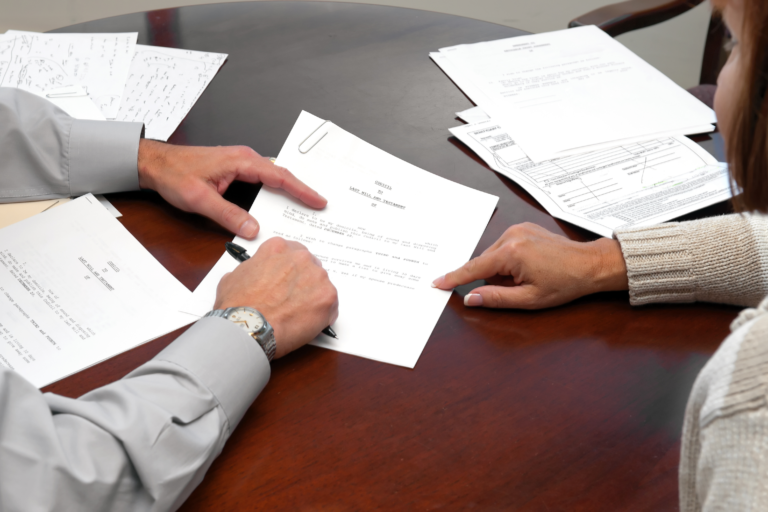Generally, the first thing people learn about probate in Florida is that it takes a long time to complete, so naturally, the first question they ask is whether there is anything they can do to speed up the Florida probate process.
The short answer is yes. Below is what you need to know.
What is Probate and Why Does It Take So Long?
Probate is a legal process that involves identifying and gathering the assets of a deceased person, paying their debts and taxes, and distributing the remaining assets to their beneficiaries or heirs.
The purpose of probate is to transfer the ownership of assets that were solely owned by the deceased person or that did not have a beneficiary designation or a joint owner with rights of survivorship. These are called probate assets.
Probate can take anywhere from a few months to several years, depending on the circumstances of each case.
Some of the factors that can delay probate are:
- The size and complexity of the estate.
- The type of probate administration.
- The availability and cooperation of the personal representative.
- The number and nature of creditor claims.
- The number and relationship of beneficiaries or heirs.
How Can You Speed Up the Florida Probate Process?
While some aspects of probate in Florida are beyond your control, there are some steps you can take to speed up the Florida probate process and make it smoother for everyone involved, such as:
- Hiring an experienced probate attorney:
Probate can be a complex and confusing process that requires legal knowledge and expertise. Hiring an experienced probate attorney can help you navigate through the probate process efficiently and effectively.
An attorney can advise you on your rights and obligations as a beneficiary or heir, prepare and file all the necessary documents with the court, communicate with the personal representative and other parties on your behalf, resolve any issues or disputes that may arise, and protect your interests throughout the probate process.
- Choosing a qualified personal representative:
If you are making a will, you should choose a personal representative who is trustworthy, competent, organized, and willing to serve. You should also name an alternate personal representative in case your first choice is unable or unwilling to serve.
On the other hand, if you are appointed as a personal representative by the court or by a will, you should consult with an attorney before accepting or declining the appointment. You should also familiarize yourself with your duties and responsibilities as a personal representative and follow them diligently.
- Avoiding or minimizing probate litigation:
Probate litigation can be costly, time-consuming, and stressful for everyone involved. It can also deplete the estate’s assets and reduce your inheritance. Therefore, you should try to avoid or minimize probate litigation as much as possible. Some ways to do this are:
- Respect the wishes of the deceased person as expressed in their will.
- Communicate openly and respectfully with the other beneficiaries or heirs and try to resolve any disagreements amicably.
- Seek mediation or arbitration as an alternative to court litigation if there are any disputes that cannot be settled informally.
- Consult with an attorney before taking any legal action or responding to any legal action taken by others.
- Planning ahead and avoiding probate altogether:
The best way to speed up the Florida probate process is to avoid it altogether. You can do this by using various strategies to transfer your assets outside of probate.
Some of these strategies are:
- Making a living trust. A living trust is a legal entity that allows you to distribute your assets after your death according to your instructions without going through probate.
- Adding beneficiary designations. You can add beneficiary designations to certain assets, such as bank accounts, investment accounts, retirement accounts, and life insurance policies. These assets will then pass directly to your designated beneficiaries upon your death without going through probate.
- Owning assets with someone else. You can create joint ownership with rights of survivorship with another person for certain assets, such as real estate, vehicles, or bank accounts. When one of you dies, the surviving owner automatically becomes the sole owner of the asset without going through probate.
- Making gifts during your lifetime. You can also transfer some of your assets to your beneficiaries during your lifetime by making gifts. However, you should be aware of the potential tax consequences before making any gifts.
Jurado & Associates, P.A. Can Help You
If you need help with the Florida probate process, you came to the right place.
We are a team of experienced and dedicated probate attorneys who can assist you with all aspects of probate administration, from filing petitions and notices to paying creditors and distributing assets.
We understand that losing a loved one is difficult for you and your family. That is why we are committed to providing you with compassionate and personalized service, as well as professional and effective representation.
We will work hard to protect your rights and interests, resolve any issues or disputes that may arise, and expedite the probate process as much as possible.
You can reach us by phone at (305) 921-0976, by email at [email protected], or by WhatsApp at +1 (305) 921-0976.






